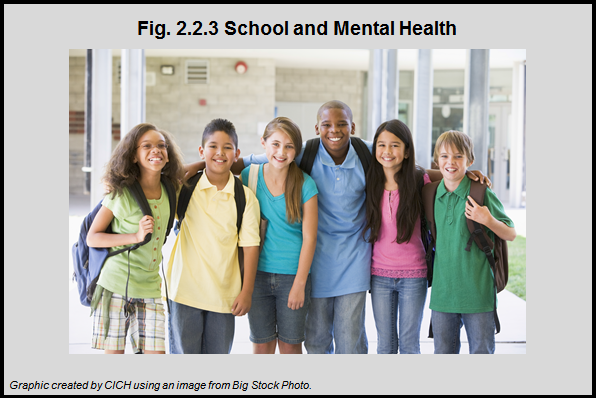School and Mental Health

According to the New Canadian Children and Youth Study (children aged 4 to 6 and 11 to 13 years), immigrant parents’ perceptions of their children’s school is important to the well-being of their children. Children were less likely to be physically aggressive – for example, to get into fights and bully other children – if their parents had positive perceptions of the school environment. This relationship existed in spite of the child’s gender and age; the parents’ education, ethnicity or depressive symptoms; the family’s income and level of dysfunction; and factors related to the family’s acculturation – e.g., the length of time they had been in Canada, their language spoken and their relative living conditions.1
1Hamilton HA, Marshall L, Rummens jA, Fenta H and Simich L. Immigrant parents’ perceptions of school environment and children’s mental health and behavior. Journal of School Health June 2011; 81(6): 313
Implications
The school environment is critical to the health and well-being of immigrant children and youth. Focusing on the relationship between parents and schools – whereby parents develop a positive relationship and perception – can contribute to the social supports needed to help parents promote healthy choices to their children. These findings must be considered when developing collaborative policies in education, public health and social services.
